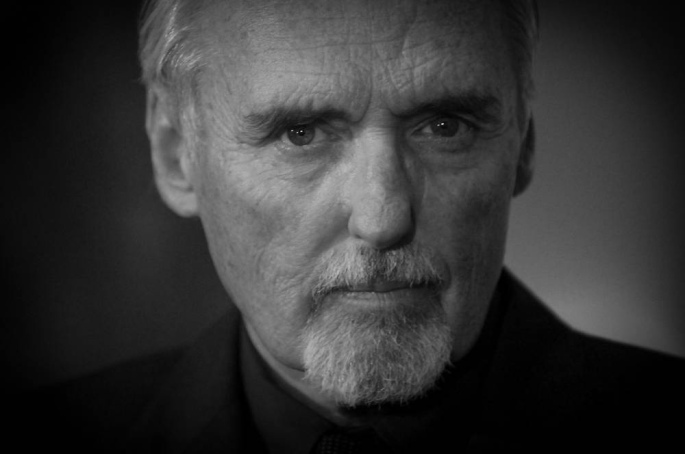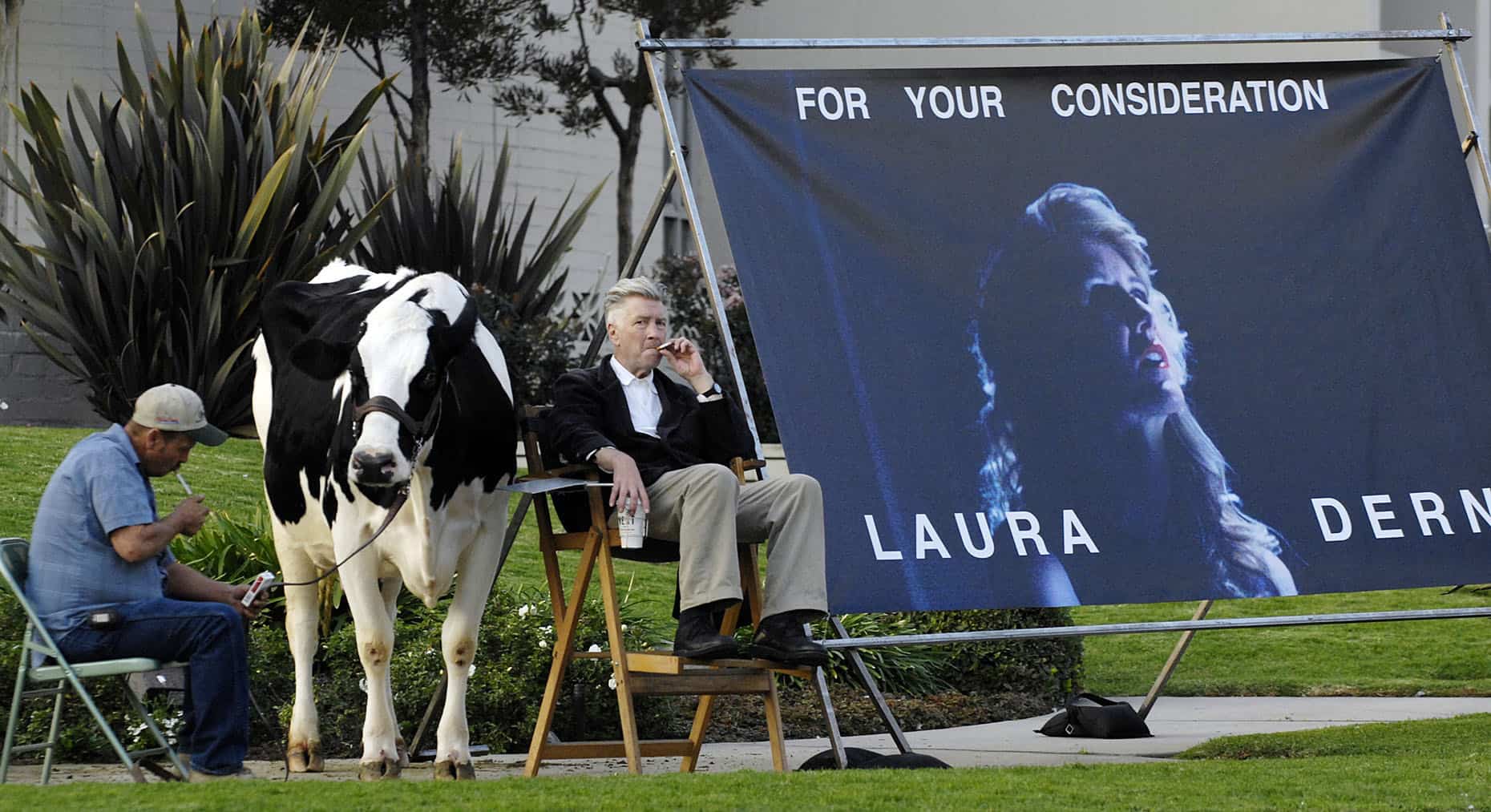One of Hollywood’s most infamous screen outlaws, Dennis Hopper’s career stretched all the way from black and white 50’s westerns to voiceovers in PlayStation platform games. His epic and resounding career saw him take on countless roles including cowboys, psychos, politicians, detectives, terrorists and all manner of extreme portrayals. He had an intense way about him, a clear and distilled form of verbal expression and half mad gleam in his eye that made any scene he appeared in fiery and memorable. Here are my top ten personal favourite performances!
10. Victor Drazen in Fox’s 24

One of the more heinous and tough to kill villains that Kiefer Sutherland’s Jack Bauer ever went up against, Drazen is a genocidal warlord from a fictional country who turns up near the end of Day 1 to make life hell for everyone. Cold, dead eyes and hellbent on escaping captivity so he can resume ethnic cleansing and blow shit up, Hopper gives him a formidable edge and makes a terrific final boss baddie for the season that kicked everything off.
9. Paul Kaufman in George A. Romero’s Land Of The Dead

Even in a post apocalyptic zombie world there are still greedy billionaire developers, Kaufman being the chief one in a ruined, decaying Detroit. He presides over the coveted skyscraper community Fiddler’s Green with an iron fist of elitism and Donald Trump megalomania, isn’t above wantonly discriminating against the poor or murdering shareholders in the business to get ahead. His response when the zombies finally bust down his doors and invade this sickened utopia? “You have no right!!!” It’s a darkly hilarious, deadpan, tongue in cheek arch villain role that he milks for all its worth and steals the show.
8. Billy in Dennis Hopper’s Easy Rider

A seminal 60’s counterculture biker picture, Dennis directs and stars as an outlaw of the road who along with his compadre (Peter Fonda) embarks on a strange, prophetic and ultimately violent journey across an America that seems to resent and coil towards the two of them at every turn. This film didn’t strike the profound chord in me it seems to have in most viewers and while I’m not it’s hugest fan, the impact that Hopper’s words, direction and rowdy performance has made on cinema and pop culture itself is remarkable.
7. Deacon in Kevin Reynolds’ Waterworld

Another post apocalyptic villain in a very misunderstood and under appreciated film. Deacon is essentially the big daddy of an aquatic desolation after water covers most of the planet and forces the dregs of the human race to adapt to marine life. He’s got one eye, legions of henchmen at his beck and call and runs his operation from an enormous derelict freighter ship. Deacon is a larger than life and a definite scenery chewer but Hopper calibrates the work just right and doesn’t go too far into ham territory, which he has sneakily done so before (remember that weird ass Super Mario film where he played King Koopa? Lol).
6. Feck in Tim Hunter’s River’s Edge

A crazed, one legged drug dealer with a blow-up doll for a girlfriend, Feck is just one of many maladjusted small town rejects in this arresting, challenging drama. Forced to confront an act from his past when a local teen murders his girlfriend for the sheer hell of it, his true nature comes out and he arrives at the ultimate decision. It’s a performance that’s terminally weird and off the wall but there’s a strange gravity in amongst the madness, a juxtaposition that Hopper handles like the expert he was.
5. Lyle from Dallas in John Dahl’s Red Rock West

Texas hitman Lyle doesn’t even show up until midway through the film and at least two characters are mistaken for him before then. When he does show up though, this deadly desert neo-noir really kicks into gear and churns put some darkly funny scenarios. Lyle is killer good at what he does but at first he’s just baffled at how all the other players managed to muck things up so badly while he was on his way there, and there’s some delicious comedic bits to go with the fiery violence he brings into play.
4. The Father in Francis Ford Coppola’s Rumble Fish

This angelic arthouse gang flick sets up a hypnotic tone for an ensemble cast to dreamily wander in. Hopper is a rowdy drunken dad to Mickey Rourke and Matt Dillon, two wayward street kids on a collision course with inevitable trouble. The father/son banter between these three has a beautifully improvised, organic feel to it and you really get the sense that this trio rehearsed, spent time together and wanted to make their collective dynamic something truly special, which it is and can definitely be said for the film overall as well.
3. Clifford Worley in Tony Scott’s True Romance

A stubborn, tough as nails ex cop and father of the year, Clifford and Christopher Walken’s mobster Vincent get some of the best passages of dialogue from Quentin Tarantino’s script in their brief but blistering standoff. It’s a galvanizing, hilarious and now iconic scene in cinema with Hopper in full on Hopped up mode.
2. Howard Payne in Jan De Bont’s Speed

LA’s finest ex cop turned mad bomber, Howard is disappointed by the department’s meagre pension fund. His solution? Arm a city bus with enough C-4 to level an entire block and detonate it if the vehicle slows below 50 MPH. It’s up to super cops Keanu Reeves and Jeff Daniels to nab him, but both his plan and Dennis’s performance are something to be reckoned with. “Pop quiz, hotshot!” He taunts Reeves with that maniacal glee only this actor could bring out.
1. Frank Booth in David Lynch’s Blue Velvet

What can I say about Frank. He huffs oxygen to get high, prefers Pabst Blue Ribbon over Heineken, loves kinky S&M sex and is an unstable, volatile psychopath who engages in every kind of reprehensible behaviour and illegal activity you can think of. It’s an unhinged piece of acting work that carries both Lynch’s and Hopper’s distinct brand of eccentric sensibilities and off kilter lunacy.
Thanks for reading and stay tuned for more!
-Nate Hill






















